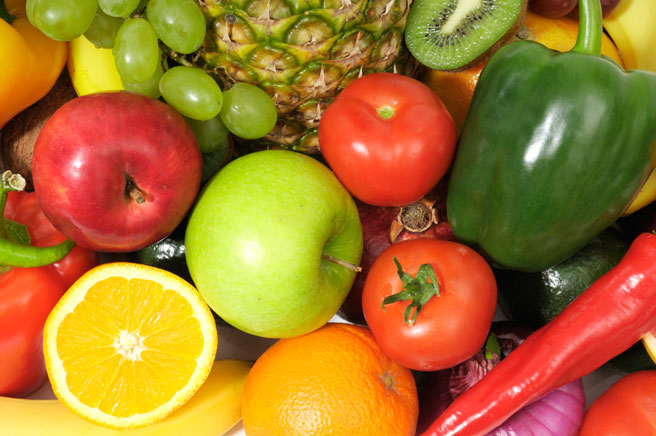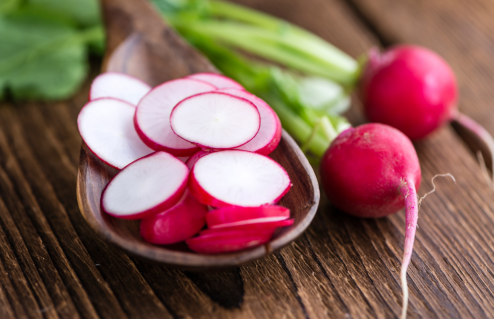The alkaline diet
For years, naturopaths have been quietly recommending an alkaline diet to treat many conditions. Now scientists and doctors are beginning to acknowledge its benefits. Anna Magee finds out why

Back in February this year, Christine, 49, knew she had to do something to feel better. She was 2st overweight, always tired, permanently bloated and had an increasingly short fuse with her children. Her psoriasis, attacks of which she’d had sporadically since her teens, had become unbearable. She went to see naturopath Fran Stockley, who introduced her to the alkaline diet. There was no counting calories but Christine did have to give up the five cups of coffee she was drinking daily, forgo sugary treats and consume less meat and alcohol while increasing her fruit and vegetable intake.
It was tough but doable. Within two weeks, her concentration at work and moods at home had improved. After three weeks she had lost the congestion around her tummy. Three months later the psoriasis was under control and Christine had lost a stone and a half. This alkaline diet probably sounds like every other healthy eating plan you’ve read about. But nutritionists and doctors interested in the impact diet has on weight and mood, and on conditions such as chronic fatigue or osteoporosis, are starting to sit up and take note.
‘An alkaline diet can be beneficial for inflammatory conditions such as arthritis, and for those who are overweight or have chronic fatigue or mood problems,’ says Dr Mark Atkinson, author of The Mind Body Bible. Dr Susan Lanham-New, professor of nutrition and food sciences at the University of Surrey, has just completed an analysis of clinical trials of the alkaline diet and its potential benefits. ‘An alkaline diet would be beneficial to all women as it appears to help conserve calcium and benefits muscle, heart and bone function.’
Optimum health
The alkaline diet was first expounded by New York doctor William Howard Hay in 1907. He believed that acid accumulation in the body contributed to weight gain, tiredness and some chronic conditions. Our bodies contain about 42 litres of liquid and the natural state of that liquid is alkaline. While our stomachs need to be highly acidic for digestion (around pH 1.5–2.5), the optimum pH of all other fluids in our bodies should be around 7.4 for good health.
‘The trouble is, many foods in the British diet — meat, caffeine, alcohol and processed grains — are highly acid-forming,’ says nutritionist Charlotte Watts, founder of positivelyslim.com. ‘The kidneys are designed to secrete excess acid through our urine, but a diet that’s high in junky, acid-forming foods tends to overload them. The body then tries to maintain its natural alkaline state by taking minerals such as calcium and magnesium from the bones and other essential areas of the body to break down all that excess acid.’ The result of an excessively acidic system is tiredness, lethargy, migraines and very often excess weight, as the body also dumps excess acid into body tissues as fat.
‘If the body is squandering its essential minerals on breaking down acids, you get deficiency and that affects both hormones and brain functioning,’ says integrated medical practitioner Han Van De Braak. ‘The result can be tiredness, moodiness and PMS.’ The general principle of the diet, says Watts, is that fruits and vegetables alkalise the body and protein foods, such as meat, grains and processed foods, acidify it. ‘But protein is still crucial to overall health,’ she says. ‘We just don’t need to eat too much of it. To maintain a healthy alkaline system, we should choose 80 per cent alkaline-forming foods and 20 per cent of the best acid-forming foods,’ she says. ‘Alkalising isn’t only about what we add to the diet, but what we take out,’ says Atkinson, ‘for example coffee, junk food and sweets. Be strict with yourself for the first month then, once you know it’s working, have your coffee, chocolate or cheese every now and then. The key is balance.’
Easy ways to alkalise
- Aim for 80/20 That’s 80 per cent alkaline-forming foods and 20 per cent acid-forming. Just look at your plate — there should be a small portion of protein, such as meat, chicken, fish or pulses, a small portion of grains, such as brown rice or sweet potato, and the rest piled high with vegetables.
- Add lemon to food Most people think citrus fruits are acid-forming, but in terms of the action they have on your system, lemons and limes are the most alkaline-forming foods available. Add them to your food regularly.
- Drink lots of water Drinking at least eight glasses a day is the cornerstone of alkalising as it helps flush excess acid from the system.
- Cut back on these acidifying foods: Caffeinated drinks, chocolate, sweets Junk food (including cakes and takeaways), soft drinks, alcohol, hard cheeses, refined carbohydrates and fatty meats
- These alkaline-forming foods should make up 80 per cent of your diet: Green tea, herbal tea, soya milk, raw unprocessed honey, carob, fruit juices, most fruit – especially cantaloupe melons, grapefruit and kiwi fruit, all vegetables, olive oil, olives, and flaxseed oil








